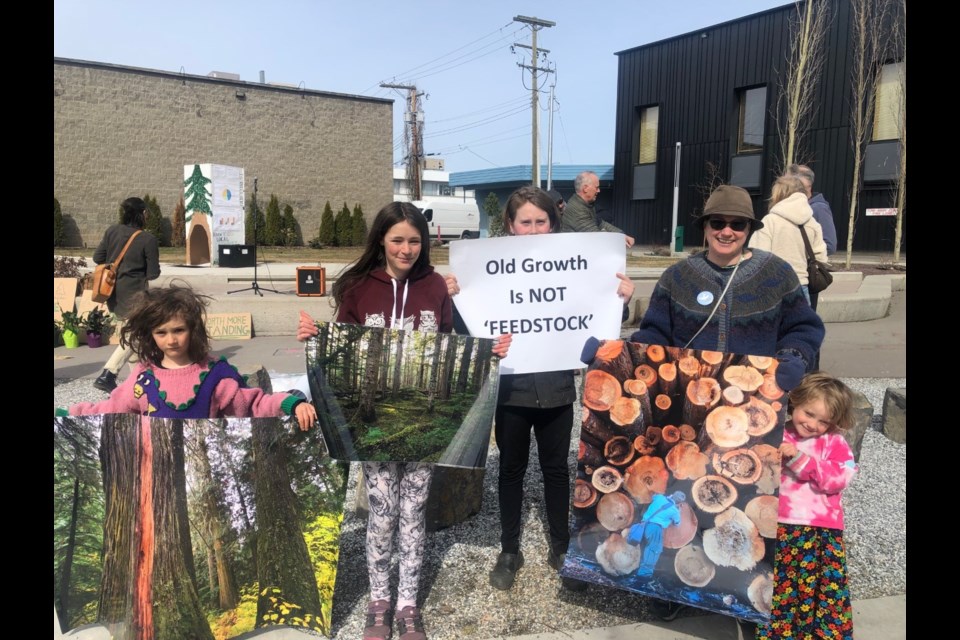Conservation North held its second annual Rebellion for Forests rally in downtown Prince George as part of the global Scientist Rebellion week of action.
Roughly 50 people came to Wood Innovation Square to celebrate intact old-growth forests as a defense against the climate crisis.
“Unfortunately, industrial logging of old-growth for lumber, and other forests for pellets is contributing to the global climate crisis instead of providing B.C. with a natural climate solution,” explained Michelle Connolly, Conservation North’s director.
UNBC professor Phil Burton, who is a forest ecologist, spoke to the crowd regarding forestry practices.
“The good news is that our forests in this part of the world are resilient. They do bounce back after logging too but our forest landscapes, our wildlife is not so resilience after repeated logging, 60 or 80 years after the first harvesting,” said Burton.
He said the difference between old-growth primary forests and secondary forests may not be visible to most members of the public, but is detectable by wildlife like martens, fishers, caribou, grizzly bears, and wolverines.
“The planning of our provincial government, of our ministry of forests, is that every tree every stick of timber is up for grabs for manufacturing and commercial products unless it is set aside otherwise. It puts the onus on others, on conservationists and ecologists, to say ‘please don’t touch that’ and perhaps that onus should be reversed.”
UNBC professor Art Fredeen addressed the global Scientist Rebellion, which is a movement of scientists from a variety of backgrounds who believe scientists should be resisting on the front lines against climate change, and how it relates to forestry.
He said many scientists hide behind a fear of being biased and believe they must just process data.
“We are the only ones who know how to tell that story that the data is providing and yet many of us muzzle ourselves and don’t say anything because heaven forbid we become known as an environmentalist,” said Fredeen.
“When I do science, I put my science hat on but that doesn’t mean I can’t put on other hats. We all do in the world that we live in, so this is really just us saying we are up against an enormous emergency so to sit by and throw our papers out into journals that nobody reads – it is not helping.”
He said climate change is an existential problem, meaning if it’s not addressed, we may not be here in the future to address it.
“These ancient forests were here, many of them, long before we arrived – our settlers – they go back a long time. They are very precious, and we should treat them that way. They are treasures.”
The rally was also opened by Lheidli T’enneh Elder Edie Frederick and featured drumming from Khast’an drummer Brenda Wilson.
“Dakelh spirituality really coincides with what is happening here today,” said Frederick.
“In our belief system, we believe that everything, animals right down to the smallest insect, every tree, every bush, even the sky, the winds the environment all have spirit and that is the basis of our spirituality.”
Conservation North held the first Rebellion for Forest Rally in March 2021 shortly after it released the report Seeing Red which is the first province-wide cumulative impacts map and the first visual account of the last remaining old-growth forests in the province.
The project shows where there are opportunities to conserve primary forests, as well as where management for restoration and/or production of wood products are a better option.







